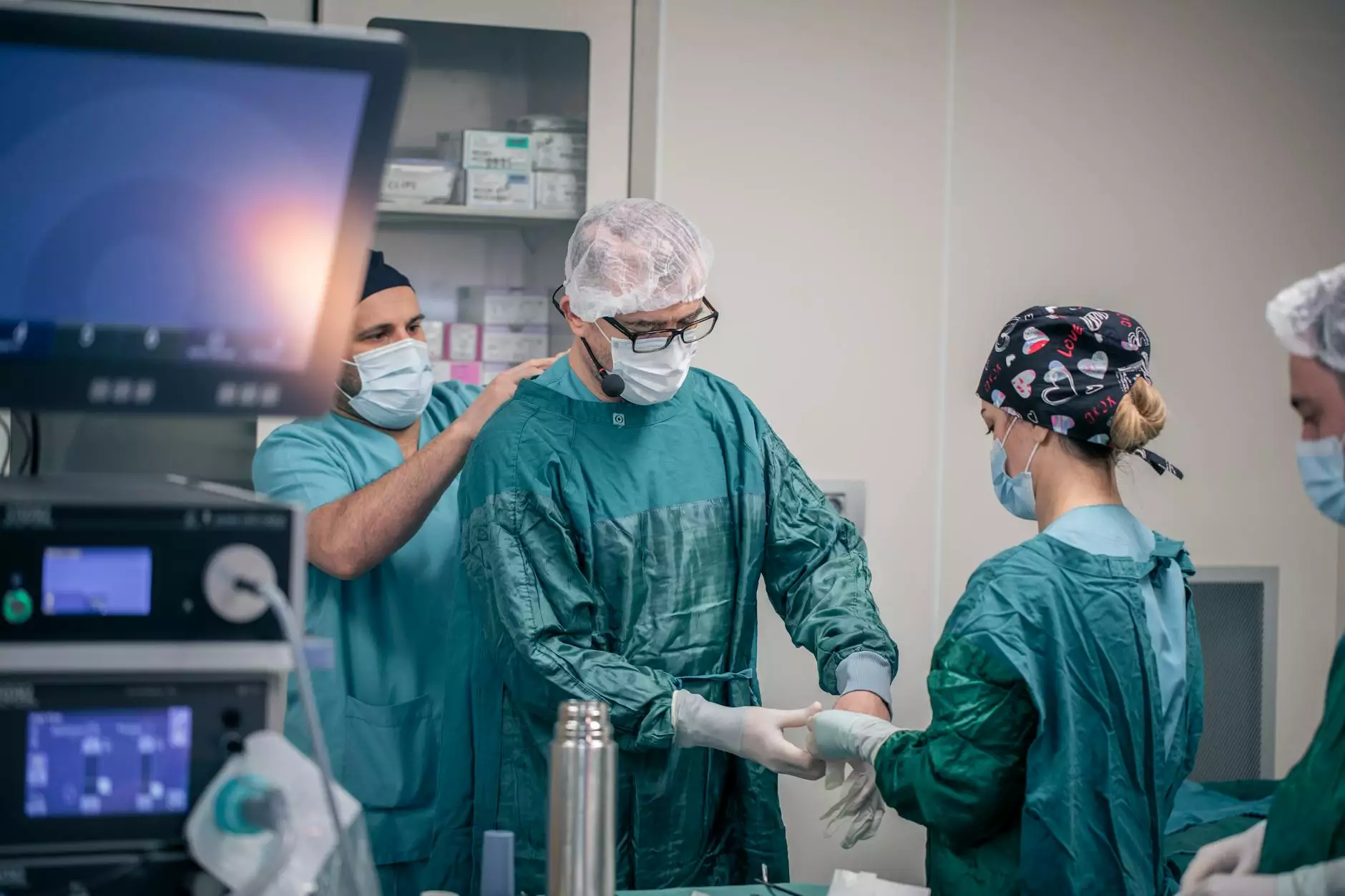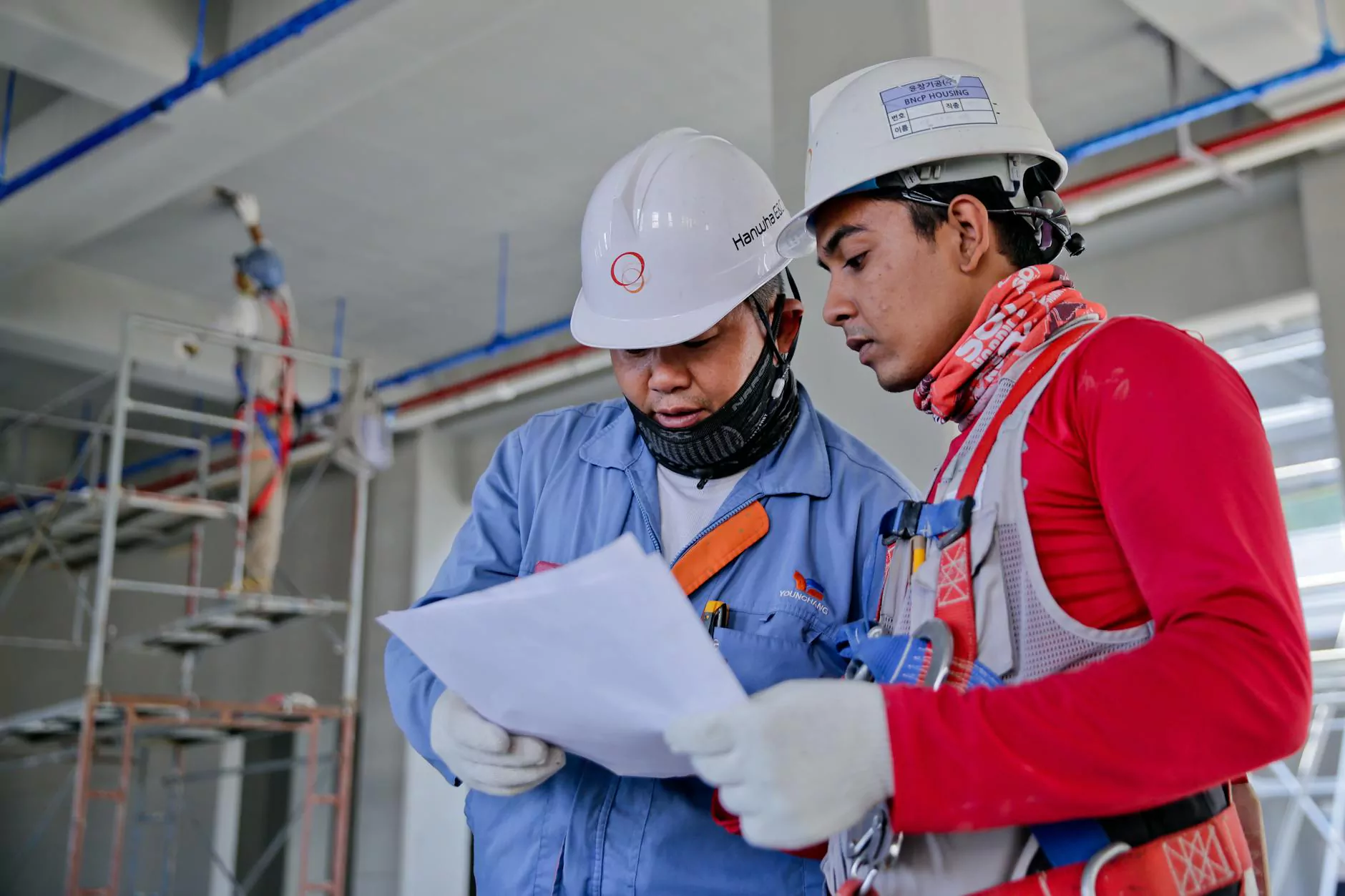Expert Lung Surgeons: Your Guide to Choosing the Right Surgical Care

When it comes to managing lung health, the expertise of lung surgeons becomes imperative. These medical professionals play a critical role in diagnosing and treating various respiratory conditions. In this comprehensive guide, we will delve into the world of lung surgeons, their qualifications, the surgical procedures they perform, and how to select the right specialist for your needs.
Understanding Lung Surgeons
Lung surgeons, also known as thoracic surgeons, specialize in surgical interventions involving the lungs, mediastinum, and other thoracic structures. Their training and proficiency enable them to address a wide array of conditions that affect pulmonary health.
Qualifications of Lung Surgeons
To become a top-tier lung surgeon, a physician must complete extensive education and training:
- Medical School: Aspiring surgeons first obtain a medical degree.
- Residency: They must then complete a residency program in general surgery, usually lasting 5-7 years.
- Fellowship: Pursuing further specialization in thoracic surgery typically entails an additional 1-2 years of fellowship training.
- Board Certification: Board certification in thoracic surgery indicates a surgeon's advanced knowledge and skill set.
Common Procedures Performed by Lung Surgeons
Lung surgeons are trained to perform a variety of complex surgical procedures, including but not limited to the following:
1. Lung Cancer Surgery
Lung cancer is one of the most serious conditions treated by lung surgeons. Surgical options include:
- Lobectomy: This involves the removal of a lobe of the lung affected by cancer.
- Pneumonectomy: The entire lung is removed in severe cases.
- Wedge Resection: A small section, or wedge, of lung containing the tumor is excised.
2. Surgical Treatment for Emphysema (LVRS)
Lung volume reduction surgery (LVRS) is an option for patients with severe emphysema. This procedure aims to remove diseased lung tissue, allowing the remaining healthy lung tissue to expand and work more efficiently.
3. Video-Assisted Thoracoscopic Surgery (VATS)
This minimally invasive technique allows lung surgeons to operate through small incisions, providing patients with less pain and quicker recovery times.
4. Pleural Procedures
Surgeons may perform procedures to manage fluid accumulation in the pleural space, including:
- Thoracentesis: A needle is used to remove excess fluid for diagnostic or therapeutic purposes.
- Pleurodesis: A chemical is introduced into the pleural space to prevent recurrent fluid collection.
Choosing the Right Lung Surgeon
Selecting the right lung surgeon can be daunting. Here are several factors to consider:
1. Evaluating Experience and Specialization
When choosing a lung surgeon, consider their experience regarding your specific condition. For instance, if you're seeking treatment for lung cancer, find a surgeon specializing in oncological thoracic surgery.
2. Seeking Referrals and Reviews
Referrals from primary care physicians or other medical professionals can lead you to top-notch surgeons. Online reviews and testimonials provide insights into patients' experiences and satisfaction.
3. Assessing Hospital Affiliations
The surgeon’s affiliation with reputable hospitals can impact the quality and availability of post-operative care. Institutions recognized for their lung health programs tend to offer superior surgical and follow-up care.
4. Communication and Comfort
Establishing a rapport with your lung surgeon is crucial. They should be approachable, willing to answer your questions, and ensure you fully understand your diagnosis and treatment options.
The Importance of Multidisciplinary Care
Lung surgeons often collaborate with a team of specialists, including pulmonologists, oncologists, radiologists, and other healthcare professionals, to create a comprehensive treatment plan. This multidisciplinary approach ensures that every aspect of the patient's health is considered.
1. Collaborating for Better Outcomes
Integration of different specialties allows for personalized treatment plans tailored to the patient's needs and preferences. Through this cooperative effort, patients can receive holistic care that addresses both surgical and non-surgical components of their lung health.
2. Access to Advanced Technologies
Many leading lung surgery programs utilize cutting-edge technology, including robotic-assisted surgery, which can enhance precision and reduce recovery times. A multidisciplinary team ensures patients have access to the latest advancements in surgical techniques.
Preparing for Lung Surgery
Preparation is key when facing surgery with lung surgeons. Here’s what to expect:
1. Preoperative Assessments
Before your surgery, a thorough assessment will be conducted, including:
- Medical History Review: Your surgeon will examine your medical history for any potential risks.
- Imaging Tests: CT scans, MRIs, or X-rays may be required to get a comprehensive view of your lungs.
- Preoperative Consultation: This meeting will clarify any doubts you may have about the procedure, anesthesia, and recovery process.
2. Lifestyle Modifications
Sometimes, surgeons will recommend specific lifestyle changes to improve surgical outcomes. These can include:
- Smoking Cessation: Quitting smoking is critical for lung health and recovery.
- Dietary Adjustments: Eating a balanced diet can enhance overall health leading up to surgery.
- Exercise: Engaging in light physical activity prior to surgery may boost your strength and stamina.
Postoperative Care and Recovery
Post-surgery, the role of lung surgeons and their team is far from over. Effective postoperative care is essential for recovery:
1. Monitoring Recovery
Patients will be monitored for complications such as infections or breathing difficulties. Close observation is key to ensuring a safe recovery process.
2. Pain Management
Pain management strategies are essential as patients recover from thoracic surgery. Surgeons may prescribe medication to help manage pain and facilitate rehabilitation.
3. Follow-up Appointments
Regular follow-up appointments with your lung surgeon are essential to monitor healing and assess lung function. These visits allow for timely interventions should complications arise.
Final Thoughts on Lung Surgeons
In the realm of respiratory health, the expertise of lung surgeons is invaluable. Their ability to perform delicate operations, collaborate with multidisciplinary teams, and care for patients post-surgery are all integral to successful treatment outcomes. Choosing the right lung surgeon at facilities like Neumark Surgery can significantly impact your journey towards better lung health.
When facing challenges regarding lung health, do not hesitate to seek the specialized care of a lung surgeon. Their knowledge, combined with state-of-the-art technology and a compassionate approach, can guide you through some of the most difficult times in your health journey.
Contact Us
If you are in need of consultation or wish to learn more about the services provided by our expert lung surgeons, please visit Neumark Surgery or contact us directly.









